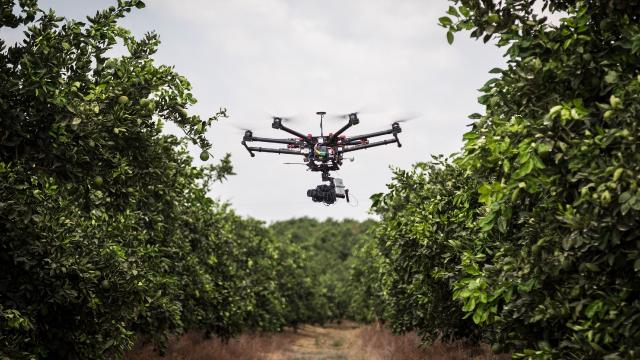We often hear about how drone technology is helping assist with nature and biodiversity restoration, but rarely do we hear about how drones can help preserve cultural heritage. That’s exactly what Gullara McInnes, 19, is doing by using the power of drones to conserve the history of the Wallara clan of the Koko-Muluridji people.
McInnes, an Indigenous teenager from Far North Queensland, is studying a Bachelor of Science at James Cook University and has combined her love of drones and mapping with her passion for her traditional country. In doing so, she has given the local Elders the opportunity to identify traditional Aboriginal sites from a bird’s-eye view.
This identification is not something that was able to be done as some of the Elders had either passed away or were physically unable to point out certain traditional sites. Instead of admitting defeat and potentially losing culturally significant sites, McInnes came up with a brilliant solution.
“There are big trees that surround the locations and restrict us from easily accessing them. That’s when I decided to use two drones, one to provide a bird’s-eye view and the other to get under the canopy, to enable our local Elders to identify the different sites, all using modern drone technology.”
McInnes’ use of drones isn’t just helping preserve sacred Indigenous history, but also allowing for sophisticated mapping of country.
By using geospatial mapping, the community are able to identify which non-native trees and grasses are posing a threat to the important sites. They then use that data to safely burn these grasses without endangering the sites or any other surrounding environments.
Pretty impressive stuff, right?
McInnes fell in love with drones back in 2016 when attending a three-day camp hosted by national drone and geospatial education provider, She Maps.
Established to help encourage more women and girls to engage in STEM, She Maps ignited a passion for drone and geospatial technology within McInnes.
Despite having to face disparaging comments about her Indigenous heritage and her gender, McInnes’ dedication to drones is too strong to be shaken by such comments.
“I’m a girl who loves science and drones, and no matter what people say, I’m not stopping until I’m the greatest female drone pilot in Australia. Then I’m setting my bar to global recognition, and I hope that one day, I’ll be able to teach the operation of drones to students,” McInnes says.
It doesn’t just stop there, however, as McInnes started a drone club at Mareeba State High School which has allowed students to delve into the world of STEM in a traditionally sport-orientated school.
She has also participated, won and organised ‘The Tournament of Drones’ events in Cairns, even training up teams who have scored in the top 10.
McInnes’ achievements have also led her to be the keynote speaker at the upcoming STEM Aboriginal Learner Congress in August which is hosted by The Young Aboriginal STEM Thinkers of South Australia.
